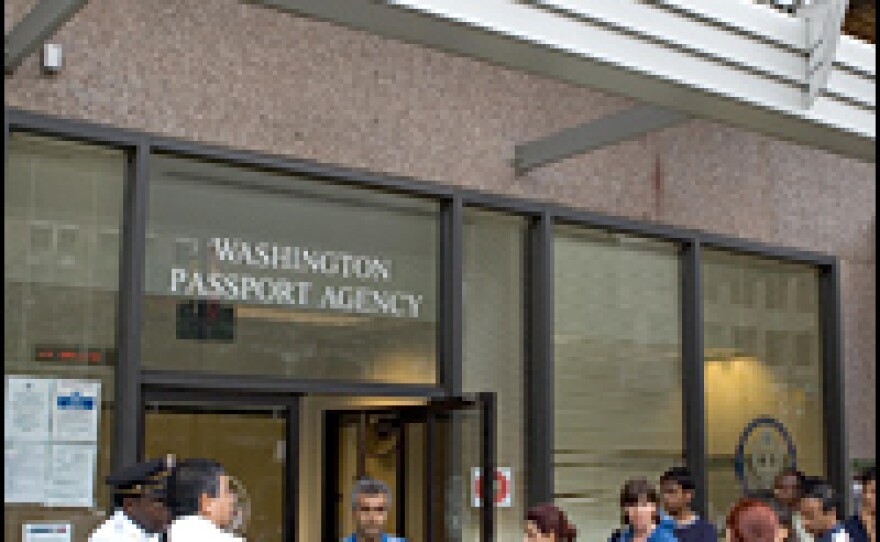
The Bush administration will soon announce its plans for enforcing a new requirement that all Americans show a passport when crossing the border by land from Canada and Mexico. The rule is to begin in January 2008.
The Homeland Security Department plan is an effort to appease lawmakers who are pushing to delay the new rule until June 2009, citing major backlogs at passport offices that came after similar new rules were instituted for air travel this year.
Lawmakers are angry about the passport backlog. Tuesday, they grilled Assistant Secretary of State Maura Harty about the new rules, and delays in issuing passports.
Florida Sen. Bill Nelson said that earlier this week, his office helped a 78-year-old constituent who was told she had to drive 7 hours to Miami and get in line at 4 a.m. to receive her passport.
"It is something that has caused a great deal of consternation," Nelson said. "Some people have been waiting as long as five months for a passport. We've got to get this straightened out."
Harty said applications were much higher than projected for the start of the year. That's when new rules went into effect requiring passports for all air travel between the United States and Mexico, Canada and the Caribbean.
"We simply did not foresee 5.4 million people applying in three months' time," Harty told the panel.
But Harty said the numbers also grew because people realize a passport is something, in the post-Sept. 11 world, that they will need as a reliable form of ID.
"We're seeing an incredible number of people [applying] who are indicating they have no travel plans," Harty said. "I think in some ways we drummed up business and more business than we had anticipated. It was a mistake, Sir. I'll accept that."
Nelson and others said that even so, more should have been done. And now they're worried about what's going to happen if the Bush administration moves forward with plans to require passports for all land crossings from Canada and Mexico in 2008.
George Voinovich, an Ohio Republican, said, "The word's getting out all over the place, you need a passport. So, in addition to the ones that are traditionally going to come in and say, 'I need it to fly,' you're going to have an avalanche of people that are going to be wanting these passports by January first of next year because they've been told that they have to have it."
Harty said she is hiring and training more people to reduce the backlog. But she also said the administration will propose that passport requirements for land travel be phased in over the next year, instead of taking effect all at once.
"Which will demonstrate that we have heard you and have heard your constituents," Harty said. "As a result, that rule, as introduced, will be very flexible."
The House voted overwhelmingly last week to delay the new passport rules for land travel until June of 2009, and the Senate appears headed in the same direction. Still, the Bush administration wants to get the rules in place next year.
Homeland Security spokesman Russ Knocke says that tighter passport requirements are crucial for border security and were a major recommendation of the 9/11 Commission.
"We have an urgency to be able to get this done and to be able to get this done as quickly as we can," Knocke said. "Otherwise, we're merely tempting fate and we're putting a tremendous burden on frontline personnel."
Despite those statements, lawmakers and businesses say they will still push for a delay until 2009.
Ken Oplinger, co-chairman of the U.S.-Canadian trade group Business for Economic Security, Tourism and Trade, says it will only confuse people if, as expected, the administration proposes requiring certain forms of ID at the border next January, with passports not required until later in the year.
"What we want is simply a date, where up until that date X is allowed," Oplinger said, "[and] after that date, Y is allowed.
"We don't want to have to try to extend this out for a year-and-a-half time period and explain to the average traveler what it is that they need."
He says the current passport chaos should be all the evidence the administration needs to know that it shouldn't rush into anything new until it's ready.
Copyright 2022 NPR. To see more, visit https://www.npr.org. 9(MDAzMjM2NDYzMDEyMzc1Njk5NjAxNzY3OQ001))






